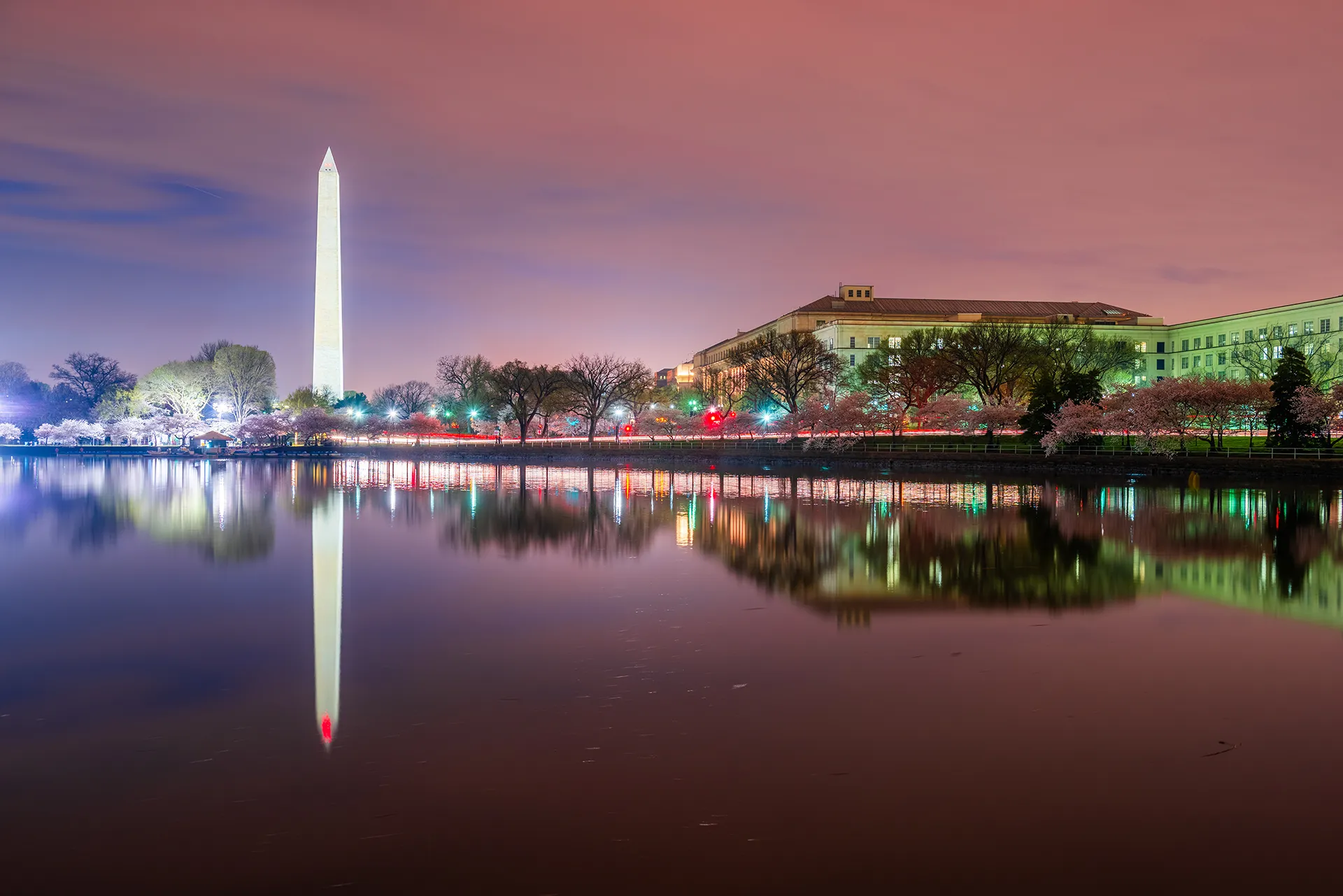February 25, 2024
- To
- Indian Gaming Association Member Tribes
- From
- Ernie Stevens, Jr., ChairmanJason Giles, Executive Director
Danielle Her Many Horses, Deputy Executive Director
- re
- BIA Publishes Final Rule for Section 293 Class III Tribal-State Gaming Compacts
- Date
- February 25, 2024
On February 21, 2024, the Bureau of Indian Affairs (“BIA”) through the Department of the Interior (“Department”) published a final rule in the Federal Register that amends the regulations at 25 C.F.R. Part 293 governing the review and approval of Class III Tribal-State Gaming Compacts.
This final rule has been published almost one year after the public notice and comment period closed on March 1, 2023. The BIA published this proposed rule on December 6, 2022, and received comments from over 56 entities. Of the 607 individual comments received, the BIA reports that about 258 comments were supportive of the changes, 136 were not supportive, and 213 were neutral. The long-awaited final rule stems from the significant evolution in the gaming industry and ongoing litigation over tribal-state gaming compacts that signify a need for further clarity in the compacting process under the Indian Gaming Regulatory Act (“IGRA”), 25 U.S.C. 2701, et seq., federal law, and trust obligations of the United States to tribal nations.
The Department incorporated most of the submitted comments with the ultimate goal that the final rule would allow for greater consistency and comprehension by those seeking to participate in the compacting process. Importantly, the Department chose to include new definitions including Gaming Activity or Gaming Activities, Gaming Facility, Gaming Spaces, IGRA, Meaningful Concession, Substantial Economic Benefit, and Tribe.
One of the most substantive of these additions includes Meaningful Concession, which has been adopted from Ninth Circuit case law, is defined as the following: “(1) Something of value to the Tribe; (2) Directly related to gaming activity; (3) Something that carries out the purposes of IGRA; and (4) Not a subject over which a State is otherwise obligated to negotiate under IGRA.” Likewise, Substantial Economic Benefit means: “(1) A beneficial impact to the Tribe; (2) Resulting from a meaningful concession; (3) Made with a Tribe’s economic circumstances in mind; (4) Spans the life of the compact; (5) Demonstrated by an economic market analysis or similar documentation submitted by the Tribe or the State.”
It is also notable that most commenters supported the changes to proposed § 293.3, which asserted the Secretary’s authority under IGRA to approve compacts or amendments and references § 293.15 for the Secretary’s authority to disapprove compacts or amendments. In jumping ahead to § 293.15, the Department adds a subsection (b) that would allow the Secretary to disapprove a compact or amendment if the submittal does not contain the documents required under § 293.8 because the Compact would not have been “validly entered into” absent these documents. As such the final rule states:
“The Secretary may disapprove a compact or amendment only if:
(a) It violates:
(1) Any provision of IGRA;
(2) Any other provision of Federal law that does not relate to jurisdiction over gaming on Indian lands; or
(3) The trust obligations of the United States to Indians; or
(b) The documents required in § 293.8 are not submitted and the parties have been informed in writing of the missing documents and are provided with an opportunity to supply those documents.”
The Department also codified the proposed changes to § 293.4, discussing whether compacts and amendments are subject to review and approval. This includes the addition of a subsection (c), which provides a process by which the parties to a compact may seek a determination as to whether an agreement or document is a compact or an amendment. Based upon comments received, the Department clarified that the timeline for the Department’s response is within 30 days of the Department’s receipt of this request. The Department also clarified that if the Department does determine that the agreement or document is a compact or amendment, it must be resubmitted for review.
Among the many other amendments to the final rule, including minor changes related to clarification or section number redesignation, the Department also amended § 293.25, now proposed under § 293.27, discussing the factors that the Secretary will analyze to determine whether revenue sharing is lawful. The Department chose to refuse to incorporate comments that suggested that the final rule should provide specific examples of the Meaningful Concessions or Substantial Economic Benefits. Instead, the final rule states that the Secretary will analyze the following factors to determine if revenue sharing is lawful:
“(a) A compact or amendment may include provisions that address revenue sharing in exchange for a State’s meaningful concessions resulting in a substantial economic benefit for the Tribe.
(b) The Department reviews revenue-sharing provisions with great scrutiny, beginning with the presumption that a Tribe’s payment to a State or local government for anything beyond § 293.18 regulatory fees is a prohibited “tax, fee, charge, or other assessment.” In order for the Department to approve revenue sharing, the parties must show through documentation, such as a market study or other similar evidence, that:
(1) The Tribe has requested, and the State has offered specific meaningful concessions the State was otherwise not required to negotiate;
(2) The value of the specific meaningful concessions offered by the State provides substantial economic benefits to the Tribe in a manner justifying the revenue sharing required by the compact; and
(3) The Tribe is the primary beneficiary of the gaming measured by projected revenue to the Tribe against projected revenue shared with the State.
(c) The inclusion of revenue sharing provisions to the State that is not justified by meaningful concessions of substantial economic benefit to the Tribe may be considered evidence of a violation of IGRA.”
Finally, the Department has redesignated proposed § 293.29 as § 293.26. This new section is now titled “§ 293.26—May a compact or amendment include provisions addressing Statewide remote wagering or internet gaming?”
From the DOI’s section-by-section analysis, they describe the new § 293.26 as follows:
“The Department proposed a new § 293.26, which clarifies that a compact may include provisions allocating jurisdiction to address Statewide remote wagering or internet gaming. The IGRA provides that a Tribe and State may negotiate for “the application of the criminal and civil laws and regulations of the Indian Tribe or the State that are directly related to, and necessary for, the licensing and regulation of such activity” and “the allocation of criminal and civil jurisdiction between the State and the Indian Tribe necessary for the enforcement of such laws and regulations.” 25 U.S.C. 2710(d)(3)(c)(i)–(ii).
The IGRA also provides that a Tribe and State may negotiate over “any other subjects that are directly related to the operation of gaming activities.” 25 U.S.C. 2710(d)(3)(c)(vii). The Department’s position, consistent with the D.C. Circuit’s decision in West Flagler Associates, Ltd. v. Haaland, 71 F. 4th 1059 (D.C. Cir. 2023), is that Tribes and States may negotiate, consistent with IGRA and other Federal law, over how wagers placed outside Indian land within a State and received by a Tribe on Indian lands are treated for purposes of State and Tribal law, and how regulation of such activity is allocated between Tribes and States.
Such topics fall under these broad categories of criminal and civil jurisdiction and such wagering is inherently directly related to the operation of gaming. Accordingly, provided that a player is not physically located on another Tribe’s Indian lands, a Tribe should have the opportunity to engage in this type of gaming pursuant to a Tribal-State gaming compact. The Department notes that the ultimate legality of gaming activity occurring off Indian lands remains a question of State law, notwithstanding that a compact discusses the activity. However, in enacting IGRA, Congress did not contemplate the Department would address or resolve complex issues of State law during the 45-day review period,[30] and such issues are outside the scope of the Secretary’s review. West Flagler, 71 F. 4th at 1065. Further, non-IGRA Federal law may also place restrictions on that activity. The Department codifies § 293.26 in the final rule, with edits for consistency with West Flagler, and, in response to comments, includes the phrase “unless that Tribe has lawfully consented” to paragraph (c).”
This rule becomes effective on March 22, 2024. The final rule, as published in the Federal Register, may be found here:
Please contact Danielle Her Many Horses at dhermanyhorses@indiangaming.org with any questions or concerns with this Alert.
BIA Publishes Final Rule for Section 293 Class III Tribal-State Gaming Compacts

Remembering and Honoring the Legacy of Dr. Martin Luther King, Jr.

Statement From The Chairman Of The Indian Gaming Association: “Compromise or Collision Course: Americans Need Government to Function”
